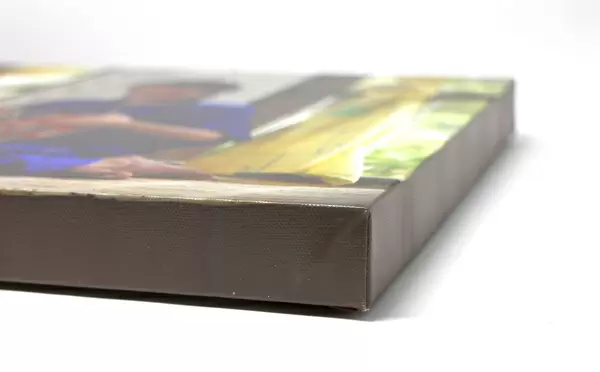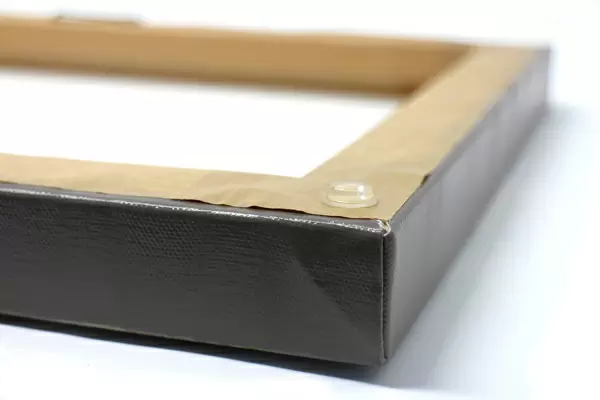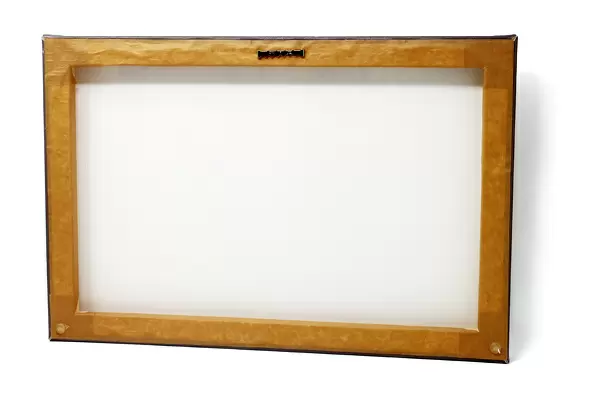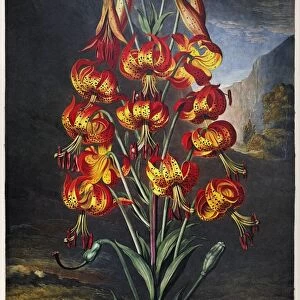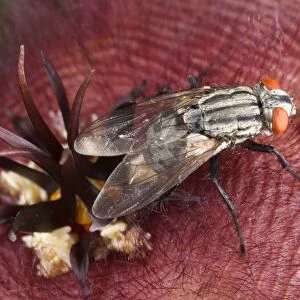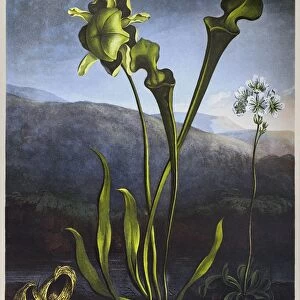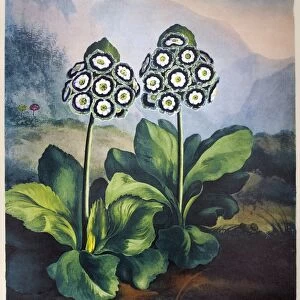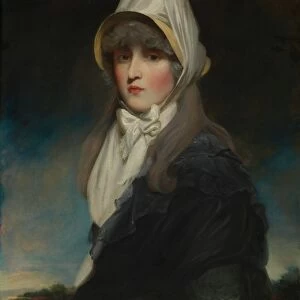Canvas Print > Granger Art on Demand > Botany
Canvas Print : THORNTON: STAPELIA. The Maggot-Bearing Stapelia (Stapelia hirsuta L. ). Engraving by Joseph Constantine Stadler after a painting by Peter Henderson for The Temple of Flora, by Robert John Thornton, 1801
![]()

Canvas Prints from Granger
THORNTON: STAPELIA. The Maggot-Bearing Stapelia (Stapelia hirsuta L. ). Engraving by Joseph Constantine Stadler after a painting by Peter Henderson for The Temple of Flora, by Robert John Thornton, 1801
THORNTON: STAPELIA.
The Maggot-Bearing Stapelia (Stapelia hirsuta L.). Engraving by Joseph Constantine Stadler after a painting by Peter Henderson for The Temple of Flora, by Robert John Thornton, 1801
Granger holds millions of images spanning more than 25,000 years of world history, from before the Stone Age to the dawn of the Space Age
Media ID 7561295
1801 Biology Botany British Constantine Flower Henderson Insect Joseph Plant Robert Stem Succulent Temple Of Flora Thornton Stadler Stapelia
20"x16" (50x40cm) Canvas Print
Bring the enchanting world of botanical wonders into your home with our Media Storehouse Canvas Prints. This stunning piece showcases "THORNTON: STAPELIA. The Maggot-Bearing Stapelia (Stapelia hirsuta L.)" - an intriguing plant from The Temple of Flora by Robert John Thornton. Captured in exquisite detail through the artistry of Peter Henderson and Joseph Constantine Stadler, this captivating engraving transports you to a time when natural curiosity was a source of endless fascination. Our high-quality canvas prints are vibrant, long-lasting, and sure to add a touch of elegance and sophistication to any room. Experience the beauty of nature like never before with Media Storehouse Canvas Prints.
Ready to hang Premium Gloss Canvas Print. Our archival quality canvas prints are made from Polyester and Cotton mix and stretched over a 1.25" (32mm) kiln dried knot free wood stretcher bar. Packaged in a plastic bag and secured to a cardboard insert for transit.
Canvas Prints add colour, depth and texture to any space. Professionally Stretched Canvas over a hidden Wooden Box Frame and Ready to Hang
Estimated Product Size is 40.6cm x 50.8cm (16" x 20")
These are individually made so all sizes are approximate
Artwork printed orientated as per the preview above, with portrait (vertical) orientation to match the source image.
FEATURES IN THESE COLLECTIONS
> Granger Art on Demand
> Botany
> Granger Art on Demand
> Florals
EDITORS COMMENTS
This print showcases the intricate beauty of a Maggot-Bearing Stapelia, also known as Stapelia hirsuta L. The image is an engraving by Joseph Constantine Stadler, skillfully crafted after a painting by Peter Henderson for "The Temple of Flora" by Robert John Thornton in 1801. The Stapelia plant, native to British landscapes, flourishes with its succulent stem and stunning flowers. Its unique feature lies in its ability to attract insects, particularly flies, which are essential for pollination. This engraving perfectly captures the delicate details of this fascinating botanical specimen. The composition exudes an air of elegance and sophistication that was characteristic of the late 18th century. It serves as a testament to the meticulous artistry employed during that era in depicting nature's wonders. As we delve into the world of botany and biology through this enchanting artwork, we are reminded of the interconnectedness between plants and insects. The presence of maggots on this particular species adds an intriguing element to our understanding of nature's complex web. This print from Granger Art on Demand allows us to appreciate both the scientific significance and aesthetic appeal found within one frame. It serves as a reminder that even seemingly ordinary organisms can possess extraordinary beauty when observed closely.
MADE IN THE UK
Safe Shipping with 30 Day Money Back Guarantee
FREE PERSONALISATION*
We are proud to offer a range of customisation features including Personalised Captions, Color Filters and Picture Zoom Tools
SECURE PAYMENTS
We happily accept a wide range of payment options so you can pay for the things you need in the way that is most convenient for you
* Options may vary by product and licensing agreement. Zoomed Pictures can be adjusted in the Basket.




